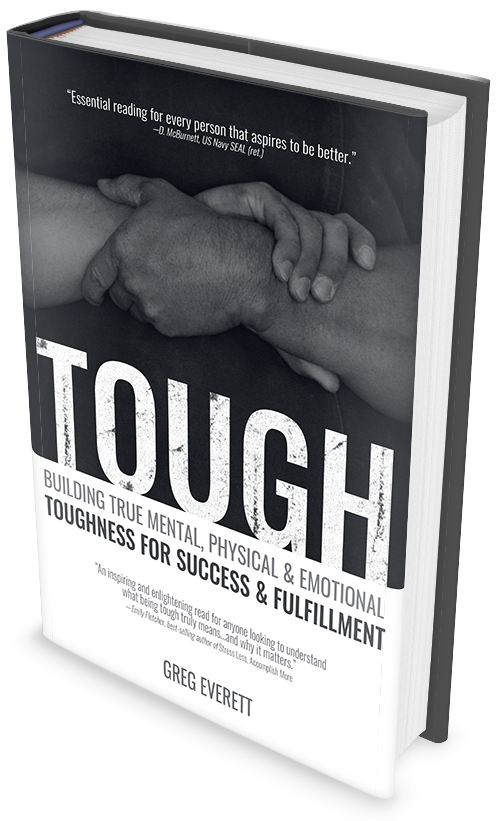What are you able to do? Self-reliance and independence are predicated on capability—the more you’re able to do, the less you’re forced to rely on others to do for you. The more you’re able to do, the less intimidating and overwhelming unfamiliar experiences are, and the less fear and anxiety they induce. The more you’re able to do, the more you’re able to help others and contribute to the world around you. And the more you’re able to do, the better equipped you’ll be to solve any problem that presents itself, and the more prepared you’ll be for any possible contingency, from the mundane to the most extreme emergencies.
Continually developing new skills and collecting new experiences doesn’t merely give you the ability to perform the specific tasks you’ve learned how to do—it gives you the tools and confidence to take on new ones successfully. Learning new information and skills is a compounding process. The act of learning develops our ability to learn, creates a growing framework and foundation of information with which we can make future associations in order to assimilate and apply more information, and transforms our perspective on the world and our potential.
Any decent sport coach will encourage young athletes to play as many different sports as possible before eventually specializing later in life in a quest to become elite. The sport of weightlifting is incredibly specific, for example—in competition, the athlete performs three single repetitions of two different lifts, each of which brings a barbell from the floor to overhead. But early development of a weightlifter needs to include an enormous range of physical activity, from running to jumping to carrying to throwing to gymnastic movements. These activities develop a physical literacy in addition to actual anatomical, physiological and neurological characteristics.
A common example of this idea is that children who participate in gymnastics early in life, even briefly, pick up other sports more quickly and easily than their peers. The movements and exercises may have no direct relation to those of the latter sport—what matters is that the child learned how to control his or her body in a broad variety of ways, and built a body physically capable of performing and tolerating difficult activity. Further, having the experience of learning and even partially mastering athletic movements creates confidence in the ability to learn and master new movements because the process is familiar and no longer intimidating or overwhelming.
Similarly, we need to cultivate a lifestyle and mindset that values and seeks new abilities across a broad spectrum, and incorporates this as an unceasing process. Each of us certainly needs to emphasize the areas in which we specialize by profession or choice, but neglecting abilities and experiences outside this narrow bandwidth is a critical error, not just for the previously explained reasons, but also because such different experiences can provide unexpected insights into your specialty—insights that are impossible to predict because of your lack of experience. We need to embrace new experiences as opportunities to learn, and continually expand our toolbox.
Much of the resistance to learning and the unfamiliar generally arises from the fear of humiliation or the exposure of our incapability to our peers. A stunning number of people prefer to live indefinitely hoping they’re never actually tested—encouraging others to assume a level of ability and knowledge exceeding the actual—rather than risk a few potential brief moments of embarrassment. This is myopic to say the least, and is an incredibly crippling choice. This of course is related to character, and our security in our identities. Being secure in who we are, we can recognize and accept our present limitations, both because we’re willing and able to perform an accurate self-evaluation, and because we refuse to allow those limitations to become permanent. Instead, we actively eliminate limitations through the pursuit of increased capability, and as a part of that often difficult pursuit, we willingly and knowingly accept the possibility of temporary failure and discomfort, whether it be physical, psychological or social.
Character and security allow us to sidestep the elaborate barriers we construct in the way of our own growth; our values dictate priorities, such as learning and becoming more capable over preserving some exaggerated concern over how we’re perceived by others, particularly when we’re viewing only a single, tightly-cropped snapshot of that perception and failing to consider the sweeping, moving view beyond it.
Continually expanding capability provides us commensurately growing independence and diminishing reliance on others. The encouragement of independence and self-reliance is unfortunately too often misinterpreted as the discouragement of asking for or receiving help, or a push for social isolation. Independence is in no way synonymous with isolation or disdain for social interaction—it’s simply the ability to take care of ourselves without the need for others’ assistance. Each of us chooses what to do with that ability as we define our identities.
Capability - An Introduction
All content © Greg Everett

